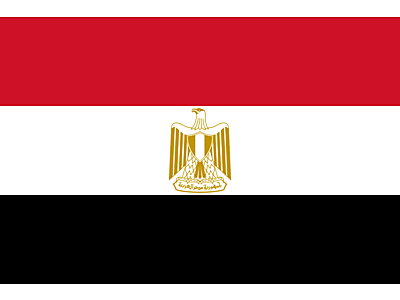While Egyptian society dates to predynastic societies from approximately 5300 B.C., the Arab conquest of 642 A.D., which brought Islam to Egypt, introduced many of the beliefs and customs of modern Egypt. Frommer's notes that Egyptians are typically relaxed and difficult to offend, but knowing basic etiquette will make your trip to Egypt more enjoyable and productive, whether you're traveling for business or pleasure. Travelers should note that smoking is ubiquitous and that outside of hotels catering to Westerners, smoke-free areas are rare.
Religion
Approximately 94 percent of Egyptians are Muslim, and Islam's tenets guide Egyptian politics, economic activity and social life. Coptic Christians comprise most of the remaining 6 percent of population. Egypt's daily papers print each day's five designated prayer times every morning, Egypt's government agencies and businesses observe all Islamic holidays, and all institutions except for emergency services shut down on Friday, Islam's holy day. While most Egyptians don't touch alcohol, it is available and Egyptians don't place a stigma on non-Muslims who drink moderately. The U.S. State Department notes that proselytizing is illegal in Egypt and could lead to the evangelist's expulsion.
Family and Honor
An Egyptian's loyalty to his family is paramount, with his ties to immediate and extended family trumping all other bonds and obligations. Egyptians view nepotism favorably because it demonstrates that the person bestowing favor is taking care of his family above all others. Egyptians take honor seriously and consider a verbal agreement binding, as to go back on your word would be disgraceful. An Egyptian's behavior also reflects upon his family, bringing prestige if he acts honorably and disgrace if he behaves poorly.
Dining in an Egyptian Home
Dinner guests customarily bring pastries or candy to the host's home. A gift of flowers is a faux pas, as they're reserved for weddings and for people suffering illness. Egyptians remove their shoes before entering a home and complimenting the host on his residence is considered common courtesy. Egyptians allow their hostess to direct them to their seat for the meal and always use their right hands for eating. Egyptian hostesses consider a guest's request for a second helping to be a great compliment.
Business Etiquette
A handshake is appropriate between members of the same sex, but a man should wait for a woman to extend her hand before offering to shake hands. If she doesn't, a polite head bow is proper. Egyptians typically offer several dinner and coffee invitations over the course of negotiations and while they rarely respond to a proposal by saying "no," if they don't give you a firm answer it indicates they've declined your proposal. Egyptians address business acquaintances by their titles and expect the same courtesy, considering it rude to address a person by his first name before being asked to. Older business travelers often have more success in negotiations than their younger colleagues because Egyptians value age and experience.
http://traveltips.usatoday.com/customs-beliefs-egypt-today-22770.html
View Full Post and Comments
Egypt’s pharaohs have left an impressive legacy of stone architecture, monumental inscriptions and religious art, allowing us to reconstruct their achievements with a fair degree of certainty. But what was daily life like for the ordinary Egyptian? Here, Egyptologist Joyce Tyldesley shares 10 lesser-known facts…
1) Who were the ‘ordinary people’?
Imagine the population of ancient Egypt arranged in a social pyramid: the pyramid base is supported by slaves, servants and the serfs; and tenant farmers work the estates owned by the king, the elite and the temples.
Next come the skilled and semi-skilled artisans; the soldiers, sailors and those employed on the great state projects (the building sites, tombs and temples). Above them are the educated professional classes, including scribes, accountants and doctors. Finally come the nobility; the elite who control much of Egypt’s wealth.
The royal family remain exclusive and aloof at the top of the pyramid, while the king, or pharaoh – the only mortal who is deemed able to communicate effectively with the state gods – is superior to everyone.
2) The family
Egypt had the highest birth rate in the ancient world. And yet, things were far from perfect. Illnesses and accidents could not be avoided, and there was no welfare programme to protect the unfortunate. The family provided the only reliable support mechanism and was therefore an institution of immense importance, with marriage a practical rather than a romantic bond, designed to create a viable economic unit.
Everyone, even the gods and goddesses, married. An unmarried man was seen as incomplete, and schoolboys were advised to wed early and father as many children as possible. Destined to follow in their parents’ footsteps, boys were trained in the trades and professions by their fathers and uncles, while girls stayed at home to learn from their mothers. In their early teens girls would marry and the cycle would start again.
3) Mistress of the house
Husbands and wives had complementary but differing roles within the marriage. While the husband worked outside the home, earning the rations that would feed his family, the wife or ‘mistress of the house’ ran the household, providing food, drink, clothing and cleaning services as needed.
To reflect this traditional allocation of duties, the Egyptian artists depicted women as pale skinned ‘indoor’ people, while men appeared as darker skinned ‘outdoor’ workers.
Childcare, cooking and cleaning were considered important, but they have little impact on the archaeological or written record. Consequently we know less about Egypt’s women than we do about its men. One thing we do know, however, is that women had the same legal rights as men of equivalent social status. This allowed them to own their own property and to live alone without the intervention of a male guardian.
4) Childbirth
Most married women spent much of their lives either pregnant or breast-feeding. With little medical advice available, amulets and charms bearing the figures of the pregnant hippopotamus goddess Taweret and the dwarf demi-god Bes were used to protect both the mother and her unborn child.
The mother prepared for birth by removing her clothing and loosening her hair. In a wealthy household she may have retreated to a specially constructed birthing hut; this was a privilege available to few. The mother squatted on birthing bricks for the delivery, and a midwife used a sharp obsidian or flint knife to cut the umbilical cord. If something went wrong, there was very little the midwife could do to help.
Mothers breastfed their babies for up to three years.
5) The home
The Egyptians built their towns and cities from mud-brick, reserving stone for their temples and tombs. Building with this material was both cheap and fast, but unfortunately, over time, almost all the mudbrick houses and palaces have crumbled and dissolved.
Fortunately, the workmen’s village of Deir el-Medina – home of the royal tomb-builders – has survived relatively intact. Here the terraced houses were long, narrow and dark, with a wooden front door opening directly onto the main street. Each house included two living or public rooms, a storeroom or bedroom, and a kitchen equipped with a mud-brick oven. The roof over the kitchen was made from matting that would allow smoke and cooking smells to escape. Stairs gave access to the rest of the roof, which could be used as an additional living space.
https://www.historyextra.com/period/ancient-egypt/life-in-ancient-egypt-what-was-it-like/
View Full Post and Comments

